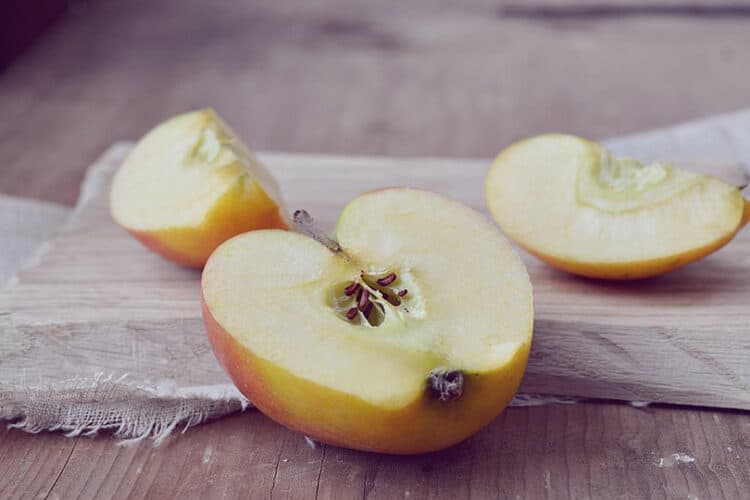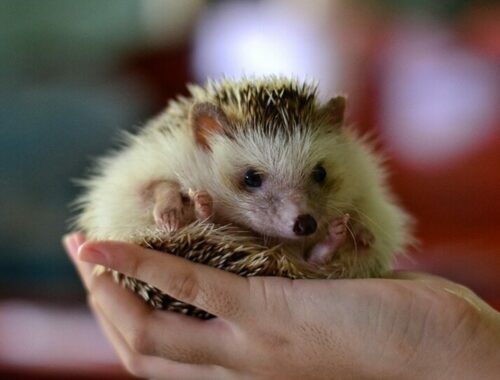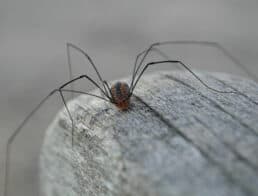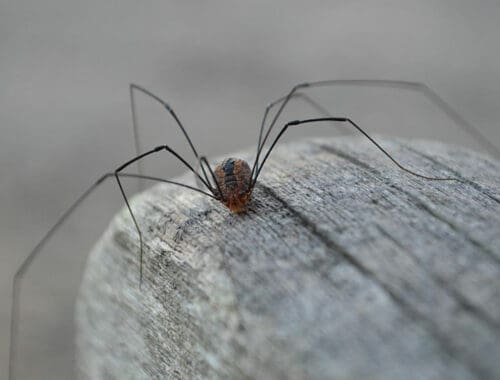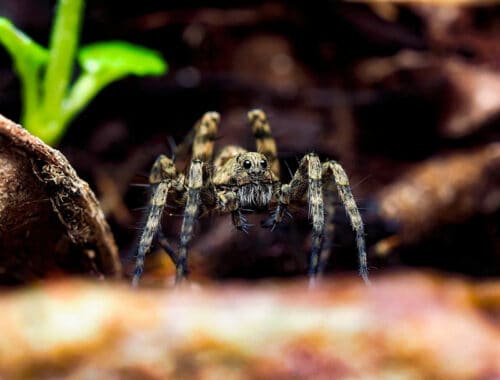With over 7,500 different types of apples in the world, boasting numerous health benefits for people, it’s natural to wonder whether the same goodness our bodies receive from apples will benefit our dogs. The answer is yes—and no.
Apples are an enjoyable snack for dogs, but the seeds can be dangerous to their health if consumed in large quantities. Thankfully, if your dog has eaten one or two apples, they should be fine as they don’t contain enough seeds for poisoning to occur. However, if they sneak off with an apple on a regular basis, there is reason for concern.
What Benefits Do Apples Have in Dogs?
All dogs, regardless of their age, can eat apples that have been chopped up into bite-sized chunks with the core removed. In fact, apples have wonderful health benefits that your dog will benefit from if consumed. Because apples are affordable, they’re an excellent crunchy alternative to expensive dog treats.
High in Fiber
Fiber should form part of your dog’s diet and is typically found in your dog’s food. Fiber helps regulate blood glucose levels, prevents constipation and diarrhea, and reduces fluctuations. It’s also an essential nutrient that helps in weight loss in obese dogs because its presence helps them feel full for longer.
They Contain Vitamins and Minerals
For a great source of vitamins A and C, get your dog munching on apples! Vitamin A is necessary for good eye health, especially night vision, as it helps the eyes adjust from dark to light and vice versa. It’s also responsible for early development in puppies, and without it, puppies are likely to experience muscle weakness and a whole lot of other health issues.
Both vitamins A and C are needed for a healthy immune system as they fight off infection. Vitamin C is also important in reducing inflammation in the body and gives your dog’s body more energy while providing relief from UTIs.
Apples also contain copper, polyphenols, and manganese, along with many other nutrients that offer health benefits to dogs and people alike.
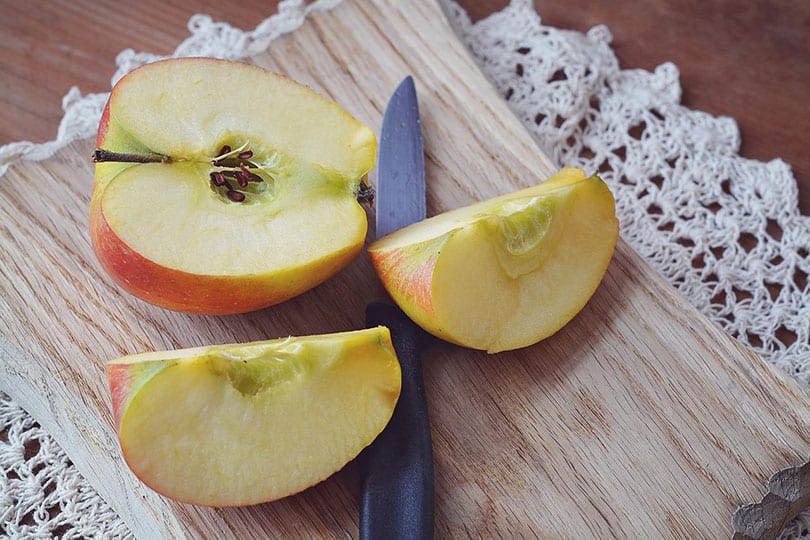
Low in Calories
We love a low-calorie snack, and apples are just that. If your dog needs to lose a few pounds, a couple of apple slices instead of high-calorie dog treats is a great alternative.
They Clean Their Teeth
Brushing an excited dog’s teeth is a hard task to accomplish, especially when they’re set on licking you from head to toe. Although apples contain sugar, it’s unlikely to cause harm to your dog’s teeth, especially if they’re eaten in moderation.
Apples have a high water content that’ll rid your dog’s mouth of the sugar, while the tougher apple skin “brushes” their teeth as they bite into them and continue to chew. Finally, a treat that is both healthy and hygienic!
Why Should Apple Seeds Be Avoided?
Apples have their benefits, but the seeds and core should never be offered to your dog.
If your dog consumes large quantities of apple seeds, they may suffer from cyanide poisoning, which can be fatal because it prevents their body from using oxygen. Thankfully, if acted on quickly, it can be treated.
A few symptoms of cyanide poisoning are weakness, dilated pupils, panting, shock, and difficulty breathing. However, the good news is that eating a couple of apple seeds is unlikely to do any harm to your dog.
More of a risk than cyanide poisoning is the risk of choking. Because the core (that contains the apple seeds) is quite hard, it could become lodged in your dog’s throat if they swallowed it whole instead of chewing it first. If you’re going to feed your dog apples, it’s important to remove the core to prevent any risk of choking.
In many cases, pesticides are used in the production of apples. Most pesticides are harmful to dogs, so it’s important to wash the apple before you feed it to them.
Of course, you should monitor your dog when introducing new foods to them as they may be sensitive to them. Although uncommon due to the low amounts of protein, some dogs may be allergic to apples.
If your dog suffers from diabetes, avoid apples altogether as they contain sugar. However, it’s always best to chat to your veterinarian and find out what they suggest regarding apples and other foods, as they’ll take your dog’s individual needs into account.
Conclusion
Apple seeds should be removed from the apple when given to your dog as a snack because they contain small amounts of cyanide. When eaten in large amounts or frequently, they pose a threat to your dog’s health. However, if consumed infrequently, your dog should be completely fine.
Featured Image Credit: Pixabay
